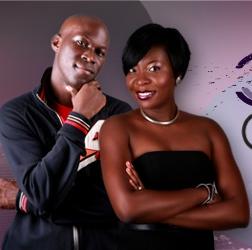In this show we’re going to be taking you to Nigeria, the Netherlands, France and the US. One of the great things about the Internet is the niche marketing it allows. One example of this is the radio show Culture Shock: Nigerians in America on Splash FM in Nigeria and which is also podcast. It’s billed as a new talk radio show connecting Nigerians in Nigeria to Nigerians in America and hosted by Abimbola Ishola and Kunle Ayodeji. We’ll also be hearing from Philipe Rosinski, intercultural coach for international business presenting his thoughts about why the coaching approach works in intercultural situations and later talking about some of the cases he has dealt with.
I’d also like to say hi to Nina Liakos in Maryland who interviewed me about a week ago about this podcast as part of her efforts to learn about how to podcast with the help of the Evonline sessions sponsored by TESOL every year in January. Nina, you did a fantastic job! It was a pleasure talking to you and very relaxing to be the interviewee for a change.
absolutely Nigerian
So let’s start the show by hearing from show number 21 of CultureShock Nigerians when they asked about the types of experiences and impressions newly arrived Nigerians to America had. You can hear more by going to cultureshocknigerians.com where you’ll find all the shows to date since it started last autumn. Thanks to Kole Odutola who alerted me to the show and to the producers for allowing us to bring you snippets. We’ll also hear from a Nigerian comedian Seyi Brown and his experience of coming to the US in 2008.
absolutely doctoral
Now if your interest in intercultural matters is academic you may be interested in a doctoral summer school open to any PhD student in the field which is going to take place in Denmark in early July at Roskilde University. It’s called Identity and Interculturality and will feature some of the greats in the field such as Michael Byram and Claire Kramsch. The 5 day summer school will concentrate on research methods and costs only 50 euros. The deadline to apply is February 28th. Thanks to Fred Dervin for alerting me to that and he is also one of the convenors of the summer school which will take the form of lectures, workshops and roundtables.
absolutely universal
Another way of learning which is becoming very popular these days is through coaching. Our next slot features Philipe Rosinski who gave an hour long webinar on his experiences as an intercultural coach. The webinar was organised by SIETAR which is the Society for Intercultural Education, Training and Research and you can enjoy the whole webinar on their website for free. In the first extract, we’ll hear how Rosinski needed to adapt the coaching approach so that it was a little less American.
absolutely mixed
Rosinski has written books about intercultural coaching, the latest one is called Global Coaching, while the earlier Coaching across Cultures describes the tool he has developed to help individual and teams find out their strengths and weaknesses in the intercultural area. You can try out the individual tool for free by clicking here. What it does is highlight your preferences in terms of a whole range of orientations such as hierarchy, multi-tasking, formality and communication styles and compares them to your abilities in those areas. In a team situation it would help for example to discover if half your team preferred to multi-task while the other half are expecting tasks to come one at a time. The orientations are those which tend to differ in different cultures and build on the ideas of the pioneers in intercultural communication such as Hofstede and Edward T Hall. I tried the test and discovered that I might have difficulty working in a very hiearchical setting for example. Let’s hear now how Rosinski could apply the results of the test to a team of Dutch and French employees involved in a merger.
Our next show will be coming to you from Dr. Laurent Borgmann in Germany on 18th February
So long … stay tuned!
The host of this show is Anne Fox : Editor: Dino Nogarole

